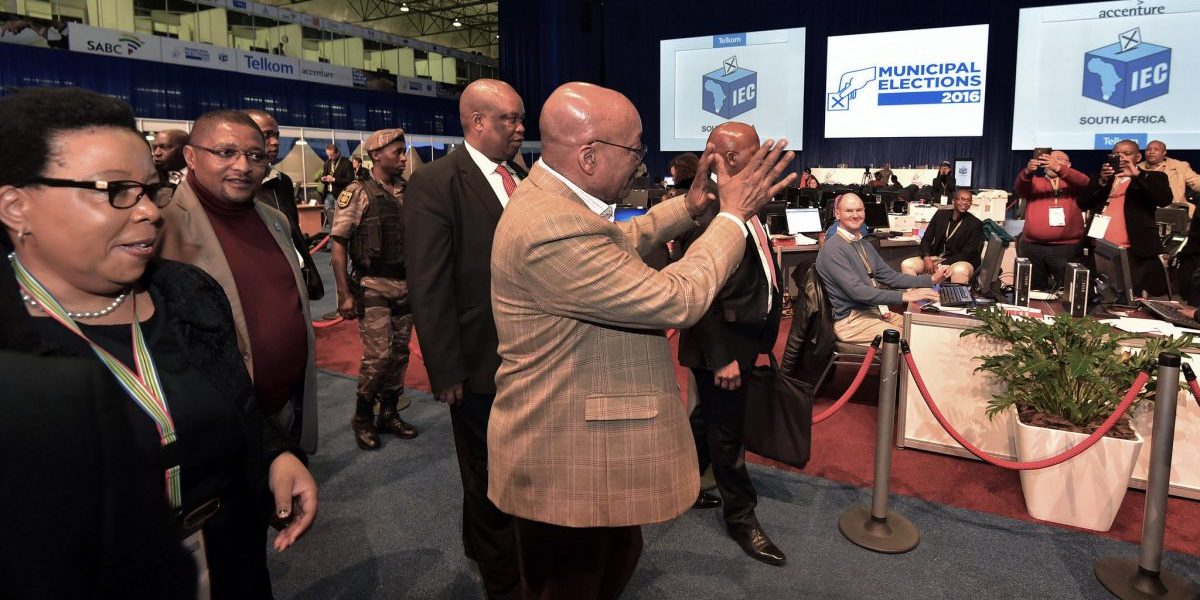We have already witnessed pre-election violence in KwaZulu-Natal and legal problems regarding the right of South Africans to vote abroad. While no election proceeds without hitches, the question is whether South Africa is setting a good example for the rest of the continent with the way its elections will be conducted.
While many elections are peaceful (if not always accepted by all), some elections in Africa are marred by violence. Two striking examples from last year – the aftermath of elections in Kenya and violent intimidation of political opposition during elections in Zimbabwe illustrate this issue. The former witnessed clashes between the supporters of presidential candidates Raila Odinga and Mwai Kibaki – resulting in the death toll exceeding 1,000 and the displacement of over 600,000 people. In Zimbabwe, Human Rights Watch reported that members of the ruling ZANU-PF set up torture camps designed to target, beat and torture those suspected of favouring the opposition. It is claimed that 30 people were killed, at least 1,000 tortured, and 40,000 more displaced throughout April 2008.
South Africa has already experienced some pre-election hostilities – albeit to a much smaller extent. In early February, supporters of the Inkatha Freedom Party (IFP) and the African National Congress (ANC) clashed in parts of the KwaZulu-Natal province. The IFP accused the ANC of shooting at and petrol-bombing the house of one of its councilors, Simon Mhlongo. It was also alleged that IFP members were subject to intimidation from their ANC counterparts. The ANC, by contrast, claimed that one of its MPs, Prince Zebulon Zulu, was shot in both legs by IFP supporters, who also damaged cars and buses that the ANC was using to campaign. Political intolerance and violent rhetoric likely contribute to such behaviour. In spite, or perhaps because of, South Africa’s past, its citizens have not learned to tolerate political differences. This manifests in calls by the ANC Youth League (ANCYL) leader Julius Malema to “kill” for their presidential candidate Jacob Zuma and references to members of the opposition Congress of the People (COPE) as “cockroaches” – a chilling reminder of the term used in the 1994 genocide against Tutsis in Rwanda. South Africa’s Independent Electoral Commission’s chairperson, Brigalia Bam, recently showed concern by saying, “We are aware of the violent nature of how some people speak… Intolerance is one of the major causes of war.” Political violence, intolerance and derogatory rhetoric undermine South Africa’s democracy and provide a poor example to the rest of the continent.
Another problematic area in African elections concerns electoral commissions, particularly their inability to provide a credible voters’ register, accusations of vote rigging, and failure to provide “free and fair” elections. The African Peer Review Mechanism (APRM) Country Review Reports (CRRs) provide a good indication of this, pointing to the existence of issues with the electoral commissions in Benin, Ghana, Rwanda, and Kenya. The first in particular is a notable example, as the APRM CRR states that the electoral commission in Benin has become ineffectual in guaranteeing free, fair and transparent elections, mainly due to the absence of a credible voters’ register and corruption. In Zimbabwe last year, the opposition exposed that – according to the electoral commission’s register – 8,000 voters lived in a block that had no buildings and discovered a shack that had 75 registered voters.
The Independent Electoral Commission (IEC) in South Africa has been exemplary, certainly by African standards, in its fairness and transparency since 1994. However, South Africa has experienced controversy regarding the right of South African expatriates to vote overseas. According to South African electoral laws, persons living overseas (with some exceptions such as diplomats) could not vote (the number of South Africans living abroad is estimated at two million). Willem Richter, a teacher living overseas, has challenged this law in court, acting together with South African opposition parties. The court said that the law was unconstitutional, as it infringed the right to equality and the right to vote, ruling that all registered South Africans living overseas should have the right to cast a ballot. Although the election date was already announced, leaving only a short time for the necessary arrangements, the Constitutional Court (to which the case was referred to) did not succumb to implied pressure and upheld this decision. The judgement means that, provided they notify the IEC by March 27, all registered voters living overseas will be allowed to vote for the national assembly on April 15. The IEC has already gone on record stating that it will be able to accommodate all those who qualify.
Compared last year’s violence in Kenya, intimidation of political opposition and vote-rigging in Zimbabwe, and lack of trust in the electoral commission of Benin, South Africa’s problems are relatively minor. One can be confident that the forthcoming elections will be free and fair. However, South Africa is a multi-cultural, multi-racial and multi-ethnic state with a dark past. In order for South Africa’s democracy to grow, political intolerance must be addressed to prevent its escalation later.
The main lesson that it provides to the rest of the continent is that having an independent judiciary and an independent electoral commission makes a crucial difference. Once these basics are in place, a political system is able to deal with issues in a democratic manner.








